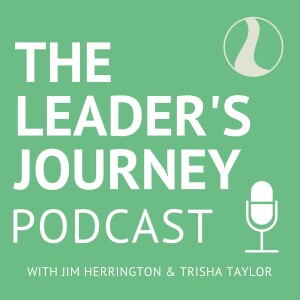
What theories do you have about leadership? How do they guide the work you do? Whether we can articulate them or not, we all have assumptions about human behavior and how people change and what good leadership looks like. When we can make them explicit and test them in our experience, we are able to be more thoughtful and intentional about how we lead.
This is the first in a series of conversations about Bowen Family Systems Theory, a theory that has deeply influenced us and our book The Leader’s Journey. You may have heard about triangling or about being a less anxious presence or about being defined and connected without knowing much about the deeper theory that underlies those popular ideas.
In this episode, we cover a lot of ground as we look at two of the eight concepts of Bowen theory: the nuclear family emotional system and differentiation of self. This sets us up to talk about the rest of the theory in future episodes and to make application to leadership at every level.
Summary: Systems thinking Anxiety and togetherness fusions Family relationship patterns Relationship patterns in congregations and organizations The role of leadership and coaching The differentiation of self scale and levels of functioning Togetherness and autonomy Resources: For basic information about BFST, we recommend these resources: The 8 Concepts of Bowen Theory by Roberta Gilbert Extraordinary Relationships by Roberta Gilbert https://thebowencenter.org/theory/ For a deep dive into Bowen theory in Bowen’s own words, try Family Therapy in Clinical Practice by Murray Bowen. To expand your application of Bowen theory, consider: A Diary of Everyday Growing Up (podcast and blog) by Jenny Brown A Failure of Nerve by Edwin FriedmanMore Episodes
 2022-09-06
2022-09-06
 2022-07-29
2022-07-29
 2022-06-23
2022-06-23
 2022-06-09
2022-06-09
 2022-05-27
2022-05-27
 2022-01-19
2022-01-19
Create your
podcast in
minutes
- Full-featured podcast site
- Unlimited storage and bandwidth
- Comprehensive podcast stats
- Distribute to Apple Podcasts, Spotify, and more
- Make money with your podcast
It is Free
- Privacy Policy
- Cookie Policy
- Terms of Use
- Consent Preferences
- Copyright © 2015-2024 Podbean.com





